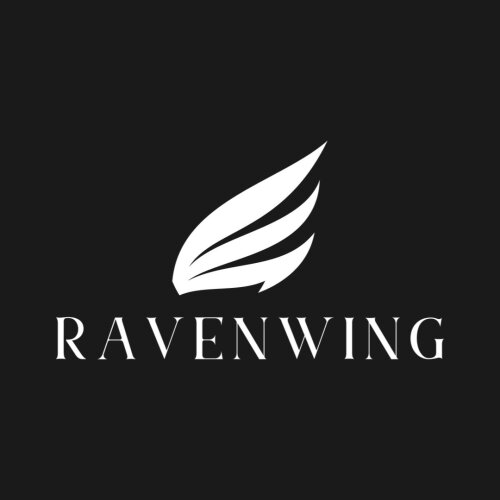Best Investment Lawyers in Bang Na
Share your needs with us, get contacted by law firms.
Free. Takes 2 min.
List of the best lawyers in Bang Na, Thailand
Thailand Investment Legal Questions answered by Lawyers
Browse our 3 legal questions about Investment in Thailand and read the lawyer answers, or ask your own questions for free.
- Breech of contract
- My business partner accused me of stealing money from the safe. Banned me from the business and decided I was a silent partner without my consent. Refused to apologise for the unproven and upsetting allegations. I want to sell my shares of the company back to them. I paid 800,000k... Read more →
-
Lawyer answer by SB Law Asia
Our firm (SB Law Asia) are experts in Thai company law and in litigation and dispute resolution. We would be happy to provide you with a free consultation.
Read full answer - Can a foreigner buy a condo unit in Thailand?
- I am French and I would like to buy a condo in Phuket or Koh Samui, am I able to do this?
-
Lawyer answer
There is no limitation in terms of nationality, and as such, any foreigner legally admitted to entering the Kingdom can buy a condominium which is generally a freehold property. It should be noted that foreigner-owned condominium units should not exceed...
Read full answer - Can a foreigner purchase land in Thailand?
- I am from the UK and I would like to purchase some land in Chiang Mai, how can I do this?
-
Lawyer answer
Due to Thai property laws, a foreigner cannot directly purchase land in Thailand; however, there are other alternatives if you wish to pursue this option. The options include; using a company, as foreigners can own land in Thailand if it...
Read full answer
Thailand Investment Legal Articles
Browse our 5 legal articles about Investment in Thailand written by expert lawyers.
- Legal Guide to Real Estate Investment Trusts (REITs) in Thailand
- Real Estate Investment Trusts (REITs) have emerged as an attractive investment vehicle for those seeking to gain exposure to the real estate market without directly owning or managing properties. In Thailand, REITs are governed by a robust legal and regulatory framework that ensures transparency, investor protection, and compliance with international... Read more →
- Conducting Business or Investing in Thailand: The Visas You’ll Need
- Thailand is a popular country among entrepreneurs, investors, and professionals looking to explore new horizons. The cost of living and doing business is relatively low, and the government provides incentives and subsidies for a variety of business activities.Whether you’re looking to invest in or start a company, or just want... Read more →
- Main Legal Measures to Protect Foreign Investment in Thailand
- According to the Board of Investment of Thailand (BOI), during the first quarter of 2021 investment applications in Thailand increased by 80% over the same period of the previous year, led by projects in the medical, electrical and electronic sectors.At Smart Legal Solutions are aware that one of the main... Read more →
About Investment Law in Bang Na, Thailand
Investment in Bang Na, Thailand, is regulated by a combination of national and local laws that ensure both domestic and foreign investors operate within a secure, transparent, and fair environment. Bang Na is a growing district in Bangkok, attracting significant real estate, business, and industrial activity due to its strategic location and infrastructure development. Understanding the legal framework is crucial for anyone interested in investing in Bang Na, as requirements, allowable activities, and restrictions can vary depending on the investment type and the nationality of investors.
Why You May Need a Lawyer
Engaging a lawyer is strongly recommended during any investment activity in Bang Na. Common situations where legal help is essential include:
- Reviewing and negotiating contracts for buying property or entering joint ventures
- Navigating the complex foreign ownership restrictions for land and businesses
- Ensuring compliance with regulations set by local and national authorities
- Obtaining the proper permits, licenses, or BOI (Board of Investment) privileges
- Resolving disputes, such as breached contracts, tenancy issues, or land encroachment
- Structuring your investment to minimize risks and tax liabilities
- Conducting due diligence to avoid fraud and ensure that assets are free of encumbrances
- Advising on inheritance planning for investment assets
Working with a knowledgeable lawyer helps prevent costly mistakes, ensures legality, and optimizes your investment security in Bang Na.
Local Laws Overview
Thailand’s investment laws are governed by national acts such as the Foreign Business Act, the Land Code, and specific regulations issued by the Board of Investment (BOI) and the Industrial Estate Authority of Thailand. In Bang Na, local zoning laws, building codes, and environmental regulations can significantly affect investment opportunities, especially in real estate or manufacturing.
- Foreign Investment Restrictions: Foreigners generally cannot own land but may hold agreements for long-term leases (often up to 30 years) and own condominiums within quota limits. Foreign shareholding in certain business categories is limited, though BOI-promoted businesses can access additional privileges.
- Licensing and Permits: Depending on your investment type, you may need multiple licenses, such as factory operation permits, environmental approvals, or retail business licenses.
- Taxation: Corporate and personal taxes, as well as property taxes, will apply. Investors must understand tax incentives offered by BOI and comply with proper tax filing procedures.
- Dispute Resolution: Disputes related to land, business contracts, or labor are handled through Thai courts, with alternative dispute resolution also available.
Every investor should be aware of these foundational rules before proceeding with investments in Bang Na.
Frequently Asked Questions
Can foreigners own land in Bang Na?
Generally, foreigners cannot own land directly in Thailand, including Bang Na. However, they may obtain long-term leases, form joint ventures with Thai nationals, or invest through eligible BOI-promoted projects.
What are the main types of investment opportunities in Bang Na?
Popular investment avenues in Bang Na include real estate (condominiums, retail spaces, factories), business establishments, franchising, and BOI-supported industries such as technology and manufacturing.
What legal documents are required to buy property?
Key documents include the title deed (Chanote), sales and purchase agreements, proof of payment, and, for foreigners, evidence of funds transferred from abroad. Legal review of all documents is crucial.
How can I invest in a Thai business as a foreigner?
Foreigners can invest as minority shareholders in most business types, or as majority shareholders if the company is BOI-promoted or falls outside restricted categories under the Foreign Business Act. Legal advice is vital for correct business structuring.
What are the risks of investing without legal advice?
Risks include signing unfair contracts, violating ownership restrictions, facing unexpected taxes, or falling victim to scams. Legal advice helps minimize these risks.
Are there special incentives for investors in Bang Na?
Yes, investors may access incentives from the Board of Investment, such as tax holidays, exemptions from customs duty, or relaxed foreign ownership rules for certain targeted sectors and locations.
What is the role of due diligence?
Due diligence involves verifying property titles, ensuring company credibility, and investigating zoning or legal encumbrances. It is a critical step before any investment transaction.
How are investment disputes resolved?
Disputes are generally handled in Thai courts. Some contracts may provide for arbitration in Thailand or internationally. Legal counsel is important in navigating the dispute resolution process.
Do I need to pay taxes on investment returns?
Yes, investors must comply with Thai tax law. Rental income, capital gains, and business profits are all subject to applicable taxes, though reductions and exemptions may apply to BOI-promoted ventures.
How do I find a reputable investment lawyer in Bang Na?
You can contact the local bar association, seek referrals from business chambers, or approach law firms experienced in Thai investment law. Always verify qualifications and previous experience with similar investments.
Additional Resources
If you require more information or support, consider the following resources:
- Thailand Board of Investment (BOI): Offers guidance, incentives, and up-to-date legal information for investors.
- Department of Business Development (DBD): Handles company registration and provides legal compliance resources.
- Bang Na District Office: Useful for inquiries about local construction permits, zoning, or community regulations.
- Thai Real Estate Information Center (REIC): Provides property data and information about legal procedures for buying and selling real estate.
- Bangkok Bar Association: Can help you connect with verified legal professionals in the Bang Na area.
- Embassy or Consulate: Foreign nationals may seek assistance or references from their country’s diplomatic mission in Thailand.
Next Steps
If you are considering an investment in Bang Na, follow these steps to protect your interests and ensure a successful outcome:
- Define your investment goals and preferred sectors or assets.
- Conduct initial research or due diligence on the market, asset, or business type.
- Consult with a qualified investment lawyer who understands both Thai national and Bang Na local laws.
- Have all contracts and documents reviewed before any financial transactions or commitments.
- Ensure proper registration of your investment and obtain all relevant permits and licenses.
- Stay informed about local regulations, taxation, and compliance requirements.
- Develop a clear dispute resolution plan in partnership with your lawyer.
Taking a proactive and informed approach, with sound legal support, will help align your investment with Thai law and maximize your chances of success in Bang Na.
Lawzana helps you find the best lawyers and law firms in Bang Na through a curated and pre-screened list of qualified legal professionals. Our platform offers rankings and detailed profiles of attorneys and law firms, allowing you to compare based on practice areas, including Investment, experience, and client feedback.
Each profile includes a description of the firm's areas of practice, client reviews, team members and partners, year of establishment, spoken languages, office locations, contact information, social media presence, and any published articles or resources. Most firms on our platform speak English and are experienced in both local and international legal matters.
Get a quote from top-rated law firms in Bang Na, Thailand — quickly, securely, and without unnecessary hassle.
Disclaimer:
The information provided on this page is for general informational purposes only and does not constitute legal advice. While we strive to ensure the accuracy and relevance of the content, legal information may change over time, and interpretations of the law can vary. You should always consult with a qualified legal professional for advice specific to your situation.
We disclaim all liability for actions taken or not taken based on the content of this page. If you believe any information is incorrect or outdated, please contact us, and we will review and update it where appropriate.










